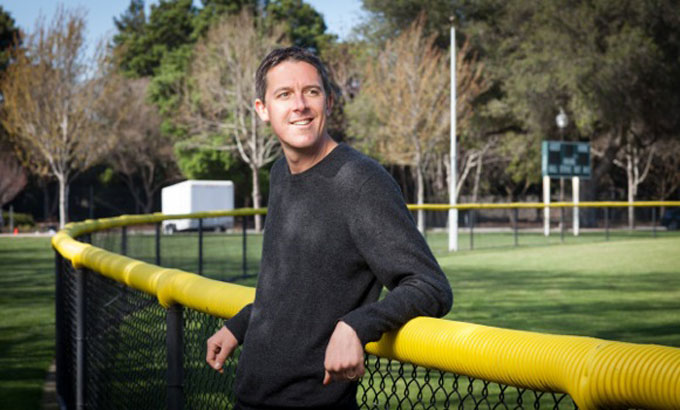John Steinbeck was a versatile writer whose portfolio includes at least one unpublished novel, Murder at Full Moon, described by the Stanford English professor and Steinbeck scholar Gavin Jones (photo) as a “horror potboiler” that deserves to see the light of day after 90 years because “It’s a whole new Steinbeck—one that predicts Californian noir detective fiction.” According to a May 22 report by Dalya Alberge in The Guardian, Jones has urged Steinbeck’s estate to permit publication of the 1930 manuscript, which Steinbeck submitted under the pen name Peter Pym before achieving success in 1935 with the publication of Tortilla Flat, the work of California fantasy fiction that finally made him famous. “Set in a fictional Californian coastal town [notes Alberge], Murder at Full Moon tells the story of a community gripped by fear after a series of gruesome murders takes place under a full moon. Investigators fear that a supernatural monster has emerged from the nearby marshes. Its characters include a cub reporter, a mysterious man who runs a local gun club and an eccentric amateur sleuth who sets out to solve the crime using techniques based on his obsession with pulp detective fiction.”
Archives for May 2021
Stanford’s Gavin Jones Urges Publication of Steinbeck’s Mystery Novel
Like John Steinbeck, Nick Taylor Heading for France
Nick Taylor, the popular San Jose State University English professor and fiction writer who has served as director of the Martha Heasley Cox Center for Steinbeck Studies since 2011, recently announced that he will be leaving the position to become resident director of the California State University system’s international programs in Paris and Provence, France. On May 17 Taylor sent the following message to members of the International Society of Steinbeck Scholars, the organization which is headquartered at San Jose State:
I am writing to let you know that this summer I will be stepping down as Director of the Martha Heasley Cox Center. In my ten years in this role, I have had the privilege of meeting many of you at our international conferences in 2013, 2016, and 2019, and many more via email and phone. I continue to be impressed by the intelligence, creativity, and passion of Steinbeck scholars. I will miss working day-to-day to advance the mission of this vital institution, but I plan to remain on the Editorial Board of Steinbeck Review and to serve on the Advisory Board of the Center.
Two assistant professors at San Jose State will divide Taylor’s duties, which include management of the Steinbeck studies center—located in San Jose’s Martin Luther King, Jr. Library—and the Steinbeck writers’ fellowship program, which is funded by a bequest from the center’s founder, the late San Jose State English professor Martha Heasley Cox.
According to the announcement, Daniel Lanza Rivers will become the center’s director, “handling all scholarly and organizational duties, including Steinbeck Review. Daniel has a PhD in Cultural Studies and English from Claremont, an MA from NYU, and a BA from Sonoma State. He came to Steinbeck through his work in the environmental humanities. His current book project examines California’s ‘settler ecologies,’ with chapters on fire, grizzly bears, and other California touchstones. He also publishes on transnational American studies and gender and sexuality studies.”
Keenan Norris will coordinate the Steinbeck Fellows program, which supports emerging talent through stipends, networking, and opportunities to showcase writing. According to the announcement, “Keenan is a novelist and essayist with a PhD in English from UC Riverside and an MFA from Mills College. His second novel, The Confession of Copeland Cane, will be published in June. Keenan has a strong network in the Bay Area writing community and years of mentorship experience. Both he and Daniel have served on the selection committee for the Steinbeck Fellows, so they are well acquainted with the program and its alumni.”





